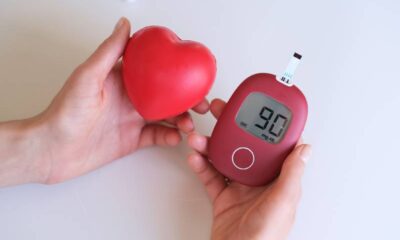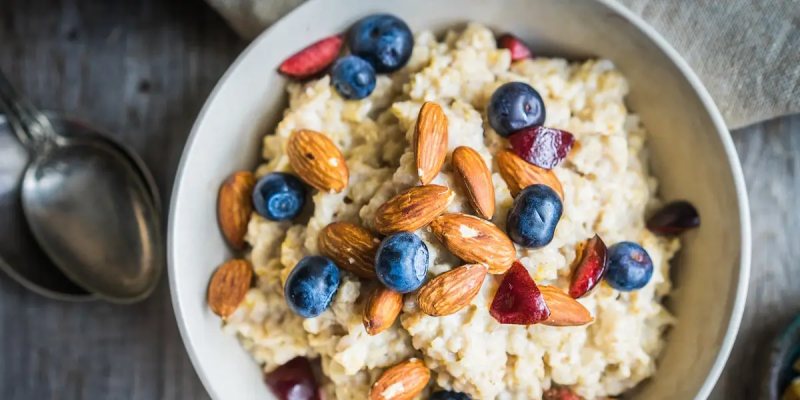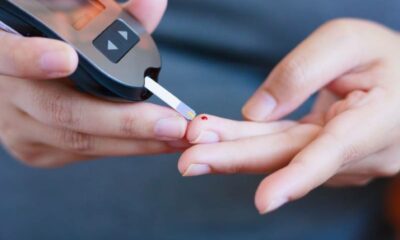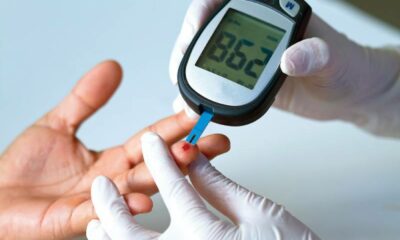Experiencing a temporary spike in blood sugar is a common occurrence for people with diabetes. While it’s important to address chronically high blood sugar levels with a doctor-supervised plan, there are safe and effective strategies to lower your blood sugar quickly in the moment. This guide explores these strategies, emphasizing the importance of consulting a doctor for long-term management.
Why Does Blood Sugar Spike?
Several factors can contribute to a rise in blood sugar:
- Carbohydrates: Carbohydrates break down into glucose (sugar) in the body, so consuming sugary drinks, refined carbohydrates, or large portions can lead to a blood sugar spike.
- Stress Hormones: The body releases stress hormones like adrenaline and cortisol, which can cause the liver to release stored glucose into the bloodstream, raising blood sugar levels.
- Lack of Exercise: Regular physical activity helps the body utilize glucose for energy, while inactivity can lead to blood sugar buildup.
- Medications: Certain medications, such as steroids, can raise blood sugar levels.
How to Lower Blood Sugar Quickly (Naturally):
Here are some effective ways to lower your blood sugar quickly, naturally:
- Hydrate: Drinking plenty of water helps dilute glucose in the bloodstream and promotes its excretion through urine. Aim for 2-3 liters of water throughout the day.
- Go for a Walk: Light to moderate exercise, such as a brisk walk, can help your muscles take up glucose from the bloodstream for energy, leading to a decrease in blood sugar levels.
- Small, Protein-Rich Snack: Opt for a small snack containing protein and healthy fats, like nuts or Greek yogurt. Protein and fat slow down the absorption of glucose, preventing further spikes.
- Try Relaxation Techniques: Stress can worsen blood sugar control. Techniques like deep breathing, meditation, or yoga can help manage stress and potentially lower blood sugar levels.
Important Considerations:
- Don’t Skip Meals: Skipping meals can lead to even sharper blood sugar spikes when you do eat. Aim for consistent meals and healthy snacks throughout the day.
- Consult Your Doctor: If you experience frequent blood sugar spikes, discuss it with your doctor. They can help identify the underlying cause and recommend appropriate management strategies.
- Not a Substitute for Long-Term Management: These strategies are for temporary relief and shouldn’t replace a long-term diabetes management plan created with your doctor.
Additional Tips:
- Monitor Your Blood Sugar: Regularly monitoring your blood sugar levels can help you identify patterns and triggers for spikes.
- Fiber is Your Friend: Choose fiber-rich foods like fruits, vegetables, and whole grains. Fiber slows down the absorption of glucose, promoting better blood sugar control.
- Read Food Labels: Pay attention to the carbohydrate content of food labels. Choose options lower in carbohydrates to avoid significant blood sugar spikes.
When to Seek Medical Attention
While the strategies mentioned above can help lower blood sugar quickly, there are situations where seeking medical attention is crucial:
- Severe Hyperglycemia (High Blood Sugar): Symptoms like excessive thirst, frequent urination, blurred vision, and extreme fatigue can indicate severe hyperglycemia. If your blood sugar reading is above 240 mg/dL (or as per your doctor’s specific guidance), seek medical attention immediately.
- Diabetic Ketoacidosis (DKA): This serious complication of type 1 diabetes can occur when the body lacks sufficient insulin to use glucose for energy and starts breaking down fat instead. Symptoms include fruity-smelling breath, nausea, vomiting, and confusion.
- Hypoglycemia (Low Blood Sugar): While not the focus of this article, it’s important to be aware of the signs of low blood sugar, such as shakiness, sweating, dizziness, and difficulty concentrating. If you experience these symptoms, check your blood sugar and consume a source of quick-acting sugar, like glucose tablets or juice.
Remember: It’s always better to be safe than sorry. If you’re unsure about your blood sugar levels or experience concerning symptoms, err on the side of caution and seek medical attention.
Living a Healthy Lifestyle for Long-Term Blood Sugar Control
While these strategies can help manage temporary blood sugar spikes, long-term control is essential for overall health and reducing the risk of complications. Here are some key lifestyle practices to incorporate:
- Healthy Eating: Focus on a balanced diet rich in fruits, vegetables, whole grains, and lean protein. Limit processed foods, sugary drinks, and unhealthy fats.
- Regular Exercise: Aim for at least 30 minutes of moderate-intensity exercise most days of the week. Physical activity helps your body utilize glucose for energy and improves insulin sensitivity.
- Maintain a Healthy Weight: Excess weight can contribute to insulin resistance. Losing even a moderate amount of weight can significantly improve blood sugar control.
- Quality Sleep: Chronic sleep deprivation can disrupt hormones that regulate blood sugar. Aim for 7-8 hours of quality sleep each night.
- Manage Stress: Chronic stress can elevate blood sugar levels. Practice stress-management techniques like yoga, meditation, or deep breathing exercises.
- Regular Doctor Visits: Schedule regular checkups with your doctor to monitor your blood sugar levels, discuss any concerns, and adjust your management plan as needed.
- Remember: These are general guidelines. A personalized diabetes management plan created with your doctor is crucial for long-term blood sugar control.
Conclusion
Experiencing a temporary blood sugar spike can be alarming. However, by implementing the strategies outlined in this guide, you can take control and lower your blood sugar quickly and safely. Remember, these are temporary measures, and consulting a doctor for long-term management is essential. By adopting healthy lifestyle habits and working with your healthcare team, you can effectively manage your blood sugar and live a healthy and fulfilling life.
Disclaimer:
This information is not a substitute for professional medical advice. Always consult your doctor for personalized guidance on managing your blood sugar levels and diabetes.

 Diabetology2 weeks ago
Diabetology2 weeks ago
 Diabetology2 weeks ago
Diabetology2 weeks ago
 Diabetology7 days ago
Diabetology7 days ago
 Diabetology15 hours ago
Diabetology15 hours ago













